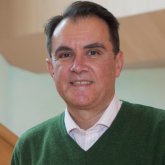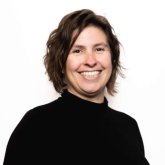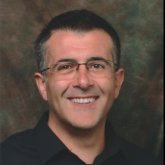Interested in developing transdisciplinary approaches that engage both scientific evidence and the imagination to collectively explore urban futures?
This position is hosted by the Faculty of Geo-Information Sciences and Earth Observation (ITC) within the Sector Plan Beta II program’s focus area on Spatial Dynamics, which is financed by the Dutch Ministry of Education, Culture, and Science.
Cities need to develop long-term plans for the future of their living environments and infrastructures amidst dynamic challenges like population growth, climate uncertainties and sustainability transitions. To plan resilient urban spaces that promote social cohesion and well-being in an inclusive way, new methods are needed that combine resident perspectives with scientific expertise. But: How can we integrate tools and practices coming from different scientific fields to contest and reconceptualize ways of collectively exploring tomorrow’s living environments? And how can we support mutual learning between researchers in the geo-information sciences and societal actors when engaging with an increasingly uncertain and turbulent future?
You will address a crucial transdisciplinary research challenge, the development of futuring methods that ignite the imagination and engage relevant climate and spatial data for deep exploration of future urban living environments. This broadened futures approach will expand evidence-based spatial modelling through the creation of experiences that connect possible alternative futures to the present for the purpose of engaging a broader range of actors in critical reflection on future scenarios embedded in their local context.
Your research methodology will be developed in the context of multiple research projects focused on contesting and contextualizing planning support technologies and methods for urban transformation. You will collaborate closely with ITC labs such as the DISC (Design and Interactive Space for Co-Creation), UT Design Lab, ITC-Centre for Disaster Resilience and UT Climate Centre. You will work with local partners to evaluate and improve jointly developed methodologies. The project will benefit from a strong cultural awareness and the ability to engage with broad networks of governmental and community actors in the planning of future urban spaces. Specific case studies will be shaped with partners at the beginning of your project.
You will be trained to produce high-quality, peer-reviewed publications, and your research will contribute to the development of new curricula taught at ITC. You will be guided to create interactive outreach throughout your research process in the form of visual media, installations, social media posts and other outlets. It is expected that PhD candidates spend about 20% of their time engaging with teaching or department duties (this can also include advising MSc students).
Information and application
For more information, you can contact Dr. Carissa Champlin e-mail. You are also invited to visit our homepage.
Please submit your application before 11 August 2025 including:
- A motivation letter (maximum 2 pages A4) emphasizing your specific interest, qualifications, and motivations to apply for this position.
- Curriculum Vitae (including a list of all courses attended, grades obtained, the names and contact information of two references and – if applicable – a publication list). Design portfolios are also welcome, but not required.
Applications that demonstrate authenticity, vision, and a sincere interest in the position will be favoured over those that include generic statements generated by AI-enabled text formulation.
For questions about working and living in the Netherlands, please consult the official website of the Netherlands Government or the website of the Expat Centre East Netherlands.
Screening is part of the selection procedure.
If you are shortlisted, you will be asked to submit an initial project idea that fits with the theme outlined in this vacancy. You should already briefly indicate this idea in your letter of motivation.
First-round (online) interviews are scheduled for August 21st. A (possible) second-round interview will take place on August 28th, 2025.
The preferred start date for this position will be between 1 October 2025 and 31 December 2025.
About the department
The Department of Urban and Regional Planning and Geo-information Management (PGM) combines social sciences and geospatial information sciences to promote meaningful and effective utilisation of geospatial digital technologies in the planning and geoinformation management practices concerned with the development of human settlements in the context of their wider social, economic, and ecological environs. Our goal is to contribute to enhancing the utilisation of geospatial information in managing the present, understanding the past, and steering the future changes of human settlements across rural and urban scales.
About the organisation
The Faculty of Geo-Information Science and Earth Observation (ITC) provides international postgraduate education, research and project services in the field of geo-information science and earth observation. Our mission is capacity development, where we apply, share and facilitate the effective use of geo-information and earth observation knowledge and tools for tackling global wicked problems. Our purpose is to enable our many partners around the world to track and trace the impact – and the shifting causes and frontiers – of today’s global challenges. Our vision is of a world in which researchers, educators, and students collaborate across disciplinary and geographic divides with governmental and non-governmental organisations, institutes, businesses, and local populations to surmount today’s complex global challenges and to contribute to sustainable, fair, and digital societies.




